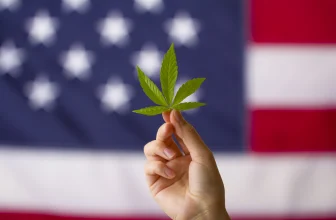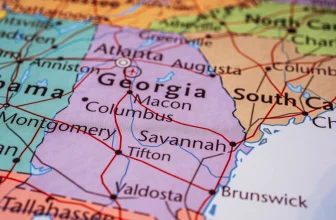
The weeks keep chugging and the weed keeps mugging — here’s your roundup for what the week of September 13 through 17 held in the world of cannabis and spirits:
No, legalization has not increased youth marijuana use; just ask the American Medical Association.
In a particularly poignant smackdown of an anti-legalization talking point, the American Medical Association concluded definitively that marijuana legalization has not increased the rate of underage marijuana use. The study accounted for both recreational and medical marijuana sales, stating that “the overall association between [recreational marijuana law] adoption and marijuana use among adolescents was statistically indistinguishable from zero.” Taking the results a bit further, the study researchers actually found that youth use of marijuana seems to decrease in states where adult use is legal and regulated.
The National Hemp Association has asked for $1 billion in federal funding.
The National Hemp Association (NHA) has sent a letter to Congress requesting a slight budget reconciliation … of $1 billion. The request, addressed to democratic and republican leaders of the House, aims to boost the burgeoning hemp industry through funding for research, innovation, and more. The NHA cites reversing climate change as one of its primary objectives here, as an acre of hemp can sequester significant carbon from the atmosphere. Of the $1 billion allotment, $400 million would go to the “supersites” of Oregon, Florida, Michigan, and New York; $120 million would go to historically underserved farmers; and $380 million would go toward supporting hemp farms in equipment and infrastructure purchases.
Mayors from across the country are pushing Biden to reschedule THC for racial equity.
The U.S. Conference of Mayors has sent an appeal to President Biden, calling on him to make marijuana federally legal. The stated objective of this move would be to expunge the convictions of all those convicted for cannabis-related charges, which have disproportionately affected Black Americans. This organization also pointed out that cannabis is likely to turn into a multi-trillion dollar industry around the globe, with the United States comprising a significant portion of it. However, they are also pushing for greater diversity and “equitable market participation” in enacting state-legal markets, as well as for the government to remediate the tragic consequences of nearly a century of cannabis prohibition. By removing THC from its list of Schedule I controlled substances and ending cannabis-related criminal penalties, the government could go a long way toward helping the problem.
California governor to decide on new cannabis bills.
For California cannabis advocates, the next few days will see all eyes on Governor Gavin Newsom. A bill has arrived on his desk that would establish a regulatory framework for the sale of hemp-derived CBD, removing the ban on smokable hemp products. The bill also includes a measure that would make it mandatory for hospitals to allow medical marijuana for certain patients. This is yet another moment in the long fight to allow medical patients to experience relief through cannabis — particularly those who are terminally ill. Medical cannabis is a gentler therapy than other drugs such as opioids and can provide effective relief. According to Eddie Franco at CCIA, signing this bill would allow “California to continue to lead the way in cannabis regulation and reform.”
Pushback against Montana’s marijuana advertising restrictions appears to have worked.
In Montana, a set of regulations restricting advertising in the cannabis industry have come under fire. The legislature placed restrictions such as limiting the size of signs outside dispensaries, as well as requiring them to place signs with extensive warnings about the dangerous effects of marijuana intoxication. Yet another suggestion would have forbidden dispensaries from advertising altogether. In late August, however, pushback against these restrictions appears to have paid off — the state released revisions that significantly walk back the restrictions.
A top US drug official has advocated for the increased study of marijuana.
Nora Volkow, Director of the National Institute on Drug Abuse (NIDA), has announced in an interview her beliefs that drug possession needs to be decriminalized and that cannabis should be easier to study. She stated that “Since dispensaries are selling products that are supposedly very specific for certain characteristics,” researchers should have easier access to be able to study the products and assess their potential efficacy in treating medical conditions. She believes the same goes.






